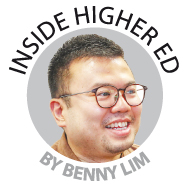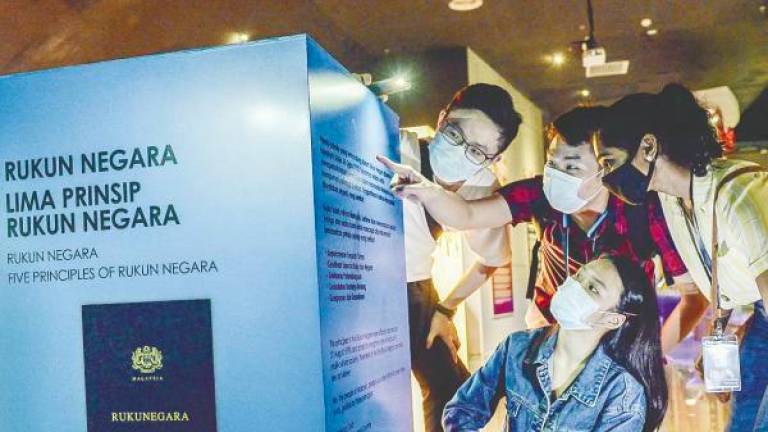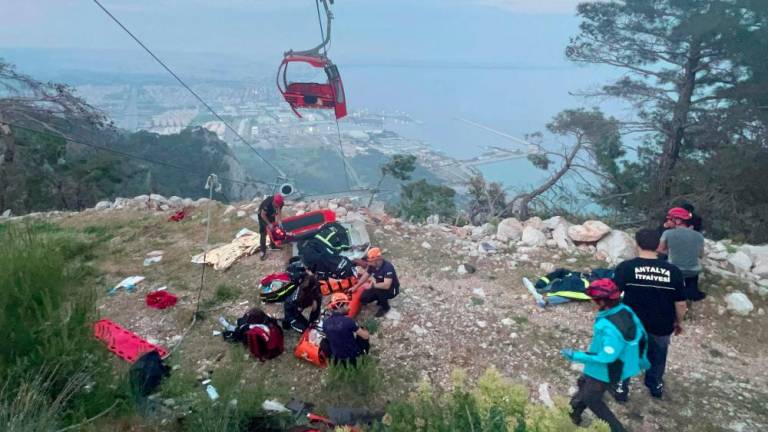THE global hospitality and tourism industry has taken its worst hit since the start of the Covid-19 pandemic. Airlines are on the brink of bankruptcy, as planes are grounded due to the worldwide travel restriction. With no tourists, hotels and resorts are confronted with extremely low occupancy rates.
All these led to a domino effect, with retail and food and beverage sectors taking a similar toll. Many scheduled business meetings, conventions and international entertainment events have also been cancelled, or postponed to 2021.
Tourism is one of the largest contributors to Malaysia’s economy. Yet, some hotels have closed down in just less than three months since the country entered into the first phase of the movement control order (MCO) in March. Others have introduced cost reduction measures, such as cutting employees’ salaries, and/or requesting employees to go on unpaid leave.
There is no denying that higher education and the industry are interdependent, especially in Malaysia, where employability is of utmost concern for most graduates.
Institutions of higher learning (IHLs) are often regarded as a key stakeholder, responsible for developing individuals with the necessary capabilities and aptitude to manage and take the lead in the hospitality and tourism industry.
In face of the long-haul challenges and possible “new normal” awaiting the industry, IHLs offering hospitality and tourism management programmes should plan to review the current curriculum to align to the new possibilities.
For insights on the impact of the pandemic on hospitality and tourism education in Malaysia, I spoke to Ch’ng Chor Ban, head of Tourism programmes, as well as Ronald Willie Binati, head of the Bachelor of Hospitality Management programme of Berjaya University College.
Internship is an important component of hospitality and tourism education. Are internships affected during this Covid-19 pandemic?
Ban: Indeed, internships provide students with the opportunity to gain capabilities in workplace operations, benefiting from direct feedback by industry professionals. Many companies within the tourism and events sector are currently in the crisis response stage, dealing with postponements and cancellations of tours and events. Some companies have offered work-from-home arrangements for interns to support in their crisis response operations.
Ronald: Many hotels are not ready to take in interns at this stage. We have introduced industry-based project (IBP) as a viable alternative to internship. The IBP requires students to develop feasible projects through direct collaboration with industry partners or self-initiation.
Ban: From my observation, students working on the IBPs are mainly developing projects that contribute directly to the post-Covid-19 response strategic plans of travel agencies and event companies. This is actually a great learning opportunity for students.
Ronald: With the introduction of the recovery MCO from June 10, I believe the demand for domestic tourism will pick up in the months to come. By then, internship opportunities for students will also return.
In your opinion, what will be the new normal in the hospitality and tourism industry?
Ban: First and foremost, it is extremely important for the industry to build people’s confidence to travel again. Clear standard operating procedures (SOPs) must be in place and communicated to the public in advance. KLIA and KLIA Ekspres, for instance, have published their SOPs online, which allow travellers to better prepare themselves for the necessary procedures prior to the travel. These are helpful information for current and future tourists.
Ronald: Hotels are already practising some form of new normal, with greater emphasis on health check measures for both staff and guests. Turnover of rooms takes more time as there are additional protocols in cleaning and disinfecting rooms. Some hotels have also rolled out room packages with options to amend check-in dates.
Ban: The industry will also accelerate the adoption of technology. Virtual travel fairs are on the rise, incorporating the use of VR technologies for potential travellers to experience the destinations. There is also a substantial increase in virtual events and webinars.
Ronald: To minimise physical human interactions for better social distancing, hotels are likely to engage technologies in enhancing the experience of their guests, from contactless check in/out, to in-room AR/VR entertainment and exercises, alongside a variety of digitised services.
Ban: Digitisation is a necessary path for the industry. However, I must stress that physical interaction is still crucial for the experience economy. Travels will continue, and live concerts will return, despite new social practices. In the near future, hybrid events involving both real time and online components will be the norm.
How should academic programmes in hospitality and tourism react to these new normal?
Ronald: Our hospitality and tourism management programmes equip students with key competencies that are relevant even in the new normal. Knowledge and skill sets obtained from the programmes are transferrable to post-pandemic situations. Instead, mindset change is more crucial.
Ban: I agree! The industry could benefit from a more coordinated risk management process. The inclination towards risk management could be inculcated in all hospitality and tourism management students from day one.
Ronald: While digital literacy is already part and parcel of academic programmes offered by most IHLs, students need to apply digital skills across a myriad of operations and transactions.
Ban: Besides acquiring digital competencies, it is also important for students to embrace digital thinking, so as to remain responsive amid the new challenges that accompany the new normal.
Ronald: Hospitality and tourism students should acquire a range of competencies during their studies. For instance, a hotel management graduate who could also manage events and F&B operations would certainly be more employable.
To conclude, the hospitality and tourism industry will evolve and eventually recover. In every crisis situation, there are opportunities.
I believe this is definitely the best time to be enrolled in a hospitality and tourism programme, for both IHLs and students are compelled to actively reflect and react on future norms. Definitely, students today will become pioneers of the new normal in the industry tomorrow.
Associate Professor Dr Benny Lim is the Dean of Faculty of Liberal Arts, and the Acting Dean of Faculty of Hospitality and Tourism, Berjaya University College. The views expressed in this article do not represent those of the university. Comments: letters@thesundaily.com













